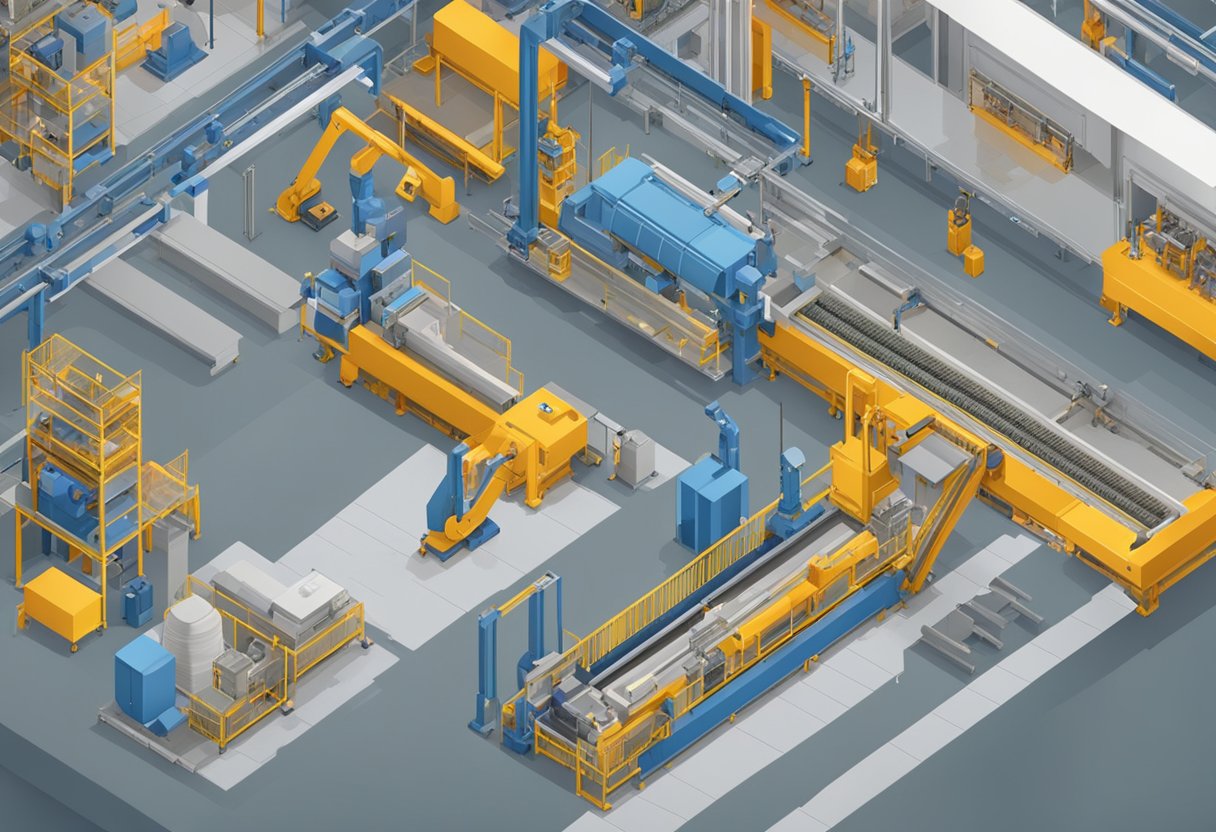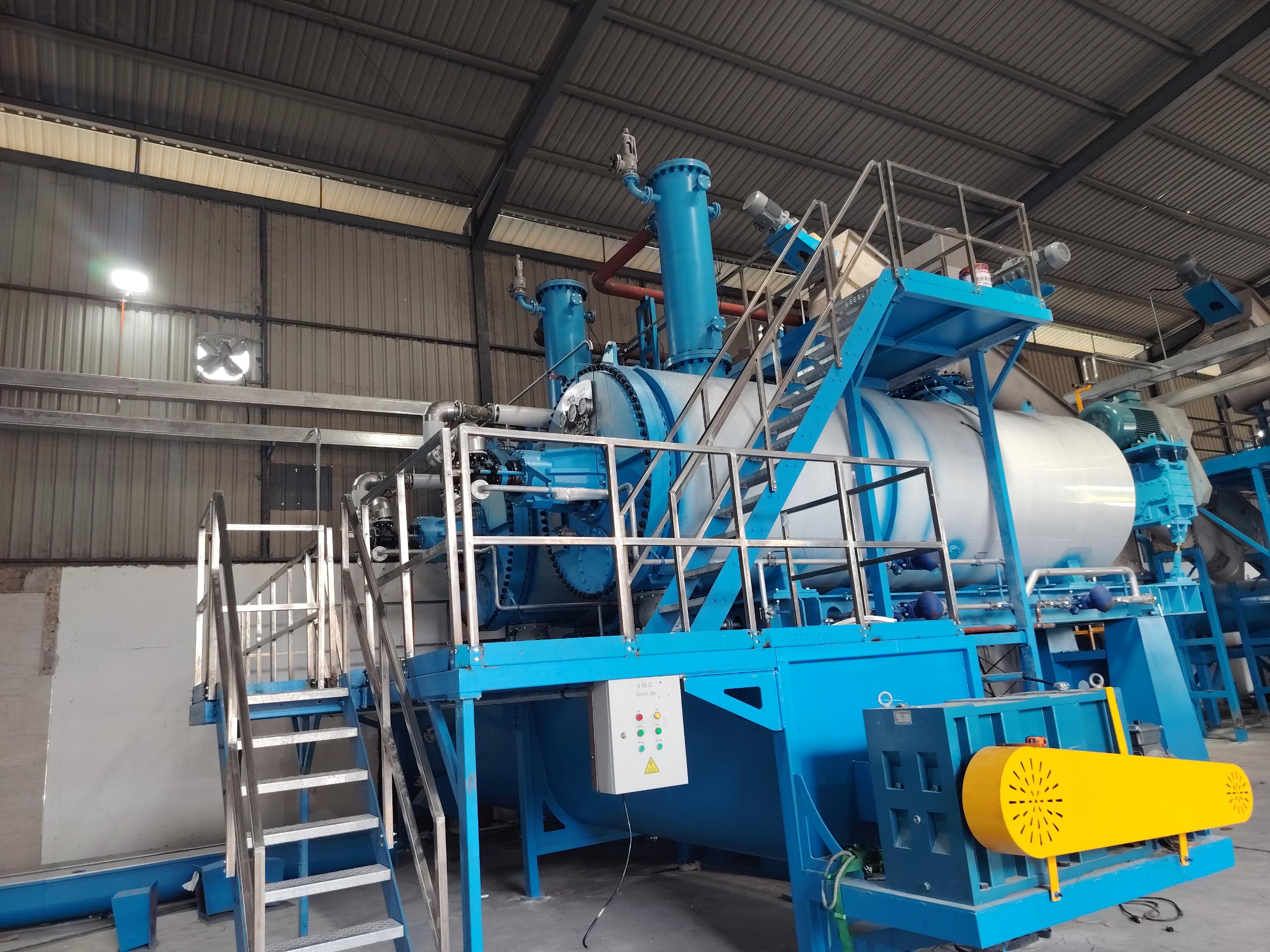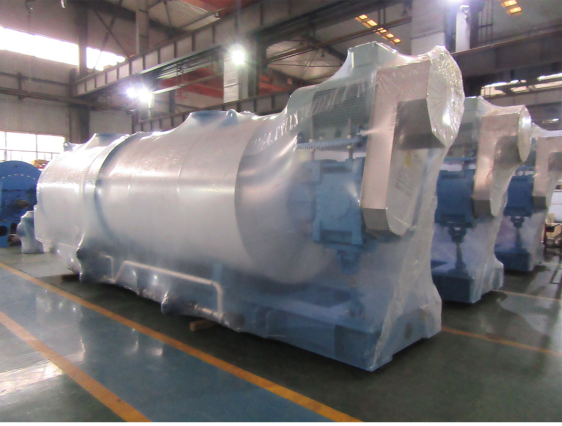
Screw Conveyor Manufacturers: A Comprehensive Guide
Screw Conveyor Manufacturers: A Comprehensive Guide
Screw conveyor manufacturers are companies that specialize in designing, producing, and supplying screw conveyors. Screw conveyors are machines used to move materials from one location to another in a production line or manufacturing process. These machines are versatile and can be used to move a wide range of materials, including powders, granules, and liquids.

Screw conveyor manufacturers offer a range of screw conveyor designs, each with specific features and benefits to suit different applications. Some of these designs include horizontal screw conveyors, inclined screw conveyors, vertical screw conveyors, and shaftless screw conveyors. The materials used to construct screw conveyors can also vary, with manufacturers using materials such as stainless steel, carbon steel, and plastic to suit different operating environments and materials being conveyed.
Overall, screw conveyor manufacturers play a crucial role in the manufacturing industry by providing efficient and reliable material handling solutions. With their expertise in screw conveyor design and production, these companies help businesses optimize their production processes and improve their bottom line.
Types of Screw Conveyors

Screw conveyors are used to transport materials from one point to another in various industries. There are several types of screw conveyors, each designed for specific applications. The following subsections describe the most common types of screw conveyors.
Horizontal Screw Conveyors
Horizontal screw conveyors are the most common type of screw conveyors. They are used to move materials horizontally and are ideal for applications where the material needs to be evenly distributed. Horizontal screw conveyors are available in various sizes and can handle a wide range of materials, including powders, granules, and flakes.
Inclined Screw Conveyors
Inclined screw conveyors are used to transport materials at an angle. They are ideal for applications where space is limited, and the material needs to be moved vertically. Inclined screw conveyors are available in various angles and can handle a wide range of materials, including powders, granules, and flakes.
Shaftless Screw Conveyors
Shaftless screw conveyors are designed for applications where the material is sticky or difficult to handle. They are ideal for transporting sludge, screenings, and other materials that tend to stick to the screw. Shaftless screw conveyors are available in various sizes and can handle a wide range of materials.
Vertical Screw Conveyors
Vertical screw conveyors are used to transport materials vertically. They are ideal for applications where space is limited, and the material needs to be moved vertically. Vertical screw conveyors are available in various sizes and can handle a wide range of materials, including powders, granules, and flakes.
In summary, there are several types of screw conveyors designed for specific applications. Horizontal screw conveyors are the most common type, while inclined, shaftless, and vertical screw conveyors are used for specific applications.
Components and Design

Screw Flights
The screw flights are the essential components of a screw conveyor. They are responsible for conveying the material through the conveyor. The flights are made of various materials, such as carbon steel, stainless steel, and hardened steel, depending on the application. The size and shape of the flights are also critical in determining the conveyor’s capacity and efficiency. The screw flights can be either helicoid or sectional, depending on the application.
Troughs and Housings
The trough and housing of a screw conveyor are responsible for containing the material being conveyed. The trough can be either U-shaped or tubular, depending on the application. The housing can be either open or closed, depending on the material being conveyed. The trough and housing are typically made of carbon steel, stainless steel, or galvanized steel, depending on the application.
Drive Units
The drive unit of a screw conveyor is responsible for providing the necessary power to operate the conveyor. The drive unit can be either electric or hydraulic, depending on the application. The motor size and horsepower are critical in determining the conveyor’s capacity and efficiency. The drive unit can be either mounted on the conveyor or remotely located, depending on the application.
Feed and Discharge Points
The feed and discharge points of a screw conveyor are responsible for loading and unloading the material being conveyed. The feed point can be either a hopper or a chute, depending on the application. The discharge point can be either a spout or a valve, depending on the material being conveyed. The feed and discharge points can be either located at the same end or opposite ends of the conveyor, depending on the application.
In summary, the components and design of a screw conveyor are critical in determining its capacity, efficiency, and overall performance. The screw flights, troughs and housings, drive units, and feed and discharge points are the essential components of a screw conveyor that must be carefully designed and selected to meet the specific needs of each application.
Materials and Build Quality

Screw conveyor manufacturers offer a variety of materials and build qualities to meet the specific needs of their customers. Here are some of the most common options:
Stainless Steel Conveyors
Stainless steel is a popular choice for screw conveyor construction due to its durability, corrosion resistance, and cleanability. It is often used in food and pharmaceutical applications where hygiene is critical. Manufacturers may offer different grades of stainless steel, with 304 and 316 being the most common.
Carbon Steel Conveyors
Carbon steel is a cost-effective option for screw conveyor construction. It is strong and durable, making it suitable for a wide range of applications. However, it is not as corrosion-resistant as stainless steel, so it may not be the best choice for applications where the conveyor will be exposed to moisture or corrosive materials.
Abrasion-Resistant Alloys
For applications where the conveyor will be handling abrasive materials, manufacturers may offer conveyors made from abrasion-resistant alloys. These alloys are designed to withstand the wear and tear of abrasive materials, such as sand, gravel, or minerals. Common abrasion-resistant alloys include AR400 and AR500.
Overall, the choice of material and build quality will depend on the specific needs of the application. Manufacturers should work closely with their customers to understand their requirements and recommend the best options for their needs.
Applications and Industries
Screw conveyors are used in a wide range of industries for various applications. Some of the common industries that use screw conveyors include agriculture, food processing, pharmaceuticals, and construction.
Agriculture
In the agriculture industry, screw conveyors are used to transport grain, seeds, and other agricultural products from one location to another. They are also used in the processing of animal feed and fertilizer production. The screw conveyors used in agriculture are typically made of durable materials that can withstand harsh outdoor conditions.
Food Processing
Screw conveyors are widely used in the food processing industry due to their ability to handle a variety of food products. They are used to transport food products such as grains, spices, and powders. Screw conveyors are also used in the processing of meat, poultry, and seafood products. They are designed to meet strict hygiene standards and are made of food-grade materials.
Pharmaceuticals
The pharmaceutical industry uses screw conveyors to transport and process a variety of materials. They are used in the production of tablets, capsules, and other pharmaceutical products. The screw conveyors used in the pharmaceutical industry are made of materials that meet strict regulatory standards.
Construction
In the construction industry, screw conveyors are used to transport materials such as cement, sand, and gravel. They are also used in the production of concrete and other construction materials. The screw conveyors used in construction are designed to handle heavy loads and are made of durable materials.
Overall, screw conveyors are versatile and reliable machines that are used in a variety of industries for a wide range of applications.
Selecting a Screw Conveyor Manufacturer
When it comes to selecting a screw conveyor manufacturer, there are several factors to consider. The right manufacturer can provide a high-quality, reliable conveyor system that meets your specific needs and requirements. Here are some key factors to keep in mind when choosing a screw conveyor manufacturer.
Customization Capabilities
One of the most important factors to consider is the manufacturer’s customization capabilities. Every application is unique, and you want a manufacturer that can design and build a conveyor system that meets your specific requirements. Look for a manufacturer that offers a wide range of customization options, including different materials, sizes, and configurations. This will ensure that you get a conveyor system that is tailored to your specific needs.
Compliance and Certifications
Another important factor to consider is the manufacturer’s compliance and certifications. The manufacturer should comply with all relevant industry standards and regulations, such as OSHA and FDA regulations. They should also have certifications from reputable organizations, such as ISO and CE. This will ensure that you get a conveyor system that is safe, reliable, and meets all relevant standards and regulations.
After-Sales Service
Finally, it’s important to consider the manufacturer’s after-sales service. A good manufacturer should provide comprehensive after-sales support, including installation, maintenance, and repair services. Look for a manufacturer that has a dedicated support team that can quickly address any issues or concerns you may have. Additionally, the manufacturer should provide training and educational resources to help you get the most out of your conveyor system.
In conclusion, selecting the right screw conveyor manufacturer is crucial to ensuring that you get a high-quality, reliable conveyor system that meets your specific needs and requirements. By considering factors such as customization capabilities, compliance and certifications, and after-sales service, you can find a manufacturer that will provide a conveyor system that meets your needs and exceeds your expectations.
Installation and Maintenance
Proper installation and maintenance of screw conveyors are crucial for ensuring optimal performance and longevity. Here are some key considerations:
Installation
During installation, it is important to ensure that the conveyor is level and properly aligned. The conveyor should be securely anchored to prevent movement during operation. The drive unit should be aligned with the discharge end of the conveyor and properly connected to the power source.
It is also important to ensure that the conveyor is properly supported. The supports should be placed at regular intervals along the length of the conveyor to prevent sagging and ensure proper alignment.
Maintenance
Regular maintenance is essential for ensuring the continued performance and longevity of screw conveyors. Some key maintenance tasks include:
- Regularly inspecting the conveyor for signs of wear or damage, such as worn flights or broken hanger bearings.
- Lubricating the bearings and other moving parts to prevent excessive wear and reduce friction.
- Checking the tension of the drive belt and adjusting as necessary.
- Cleaning the conveyor regularly to prevent buildup of material that can cause blockages or other issues.
By following these installation and maintenance guidelines, screw conveyor manufacturers can help ensure that their products perform reliably and efficiently over the long term.
Safety and Operational Guidelines
Screw conveyors are essential equipment for many industries, but they can pose safety risks if not used properly. It is crucial to follow safety and operational guidelines to ensure the safety of workers and the efficient operation of the equipment.
Safety Guidelines
- Always wear appropriate personal protective equipment (PPE) such as gloves, safety glasses, and hard hats when working with screw conveyors.
- Never reach into a moving conveyor or attempt to clear material jams with your hands.
- Keep loose clothing, jewelry, and long hair away from the conveyor.
- Use lockout/tagout procedures when performing maintenance or repairs on the conveyor to prevent accidental start-up.
- Regularly inspect the conveyor and its components for wear, damage, or other issues that could compromise safety.
Operational Guidelines
- Only trained and authorized personnel should operate the conveyor.
- Follow the manufacturer’s recommended operating procedures and capacity limits.
- Do not overload the conveyor with material beyond its capacity.
- Regularly clean and maintain the conveyor to prevent material buildup and ensure optimal performance.
- Monitor the conveyor’s performance and immediately address any issues or abnormalities.
By following these safety and operational guidelines, screw conveyor manufacturers can ensure the safe and efficient operation of their equipment, protecting workers and maximizing productivity.
Categories
Recent Posts
-
Successful Case – Malaysia 50 tons of feathers per day processing project
June 20, 2025 -
Cross-country delivery in progress! Customized production line for Russian customer completed plastic packing, about to set sail!
June 16, 2025 -
From slaughtered chickens to treasure: Sunrise slaughter waste equipment leads the way to high-value utilization
June 11, 2025


